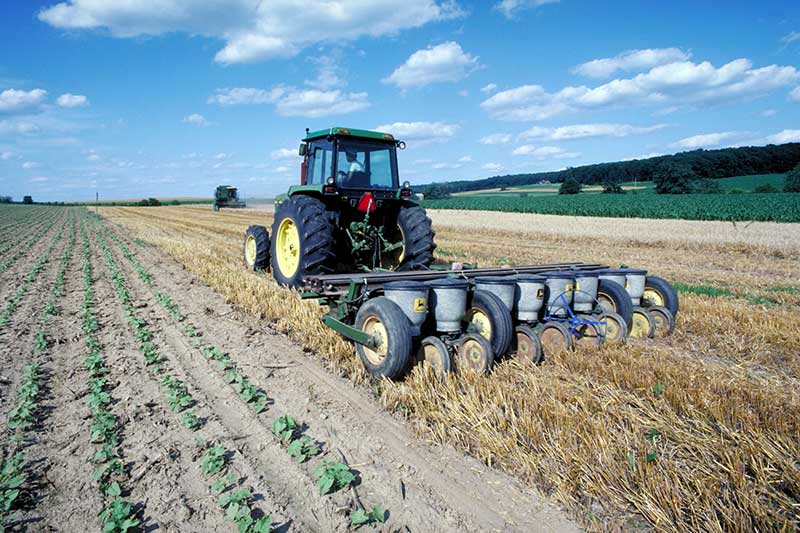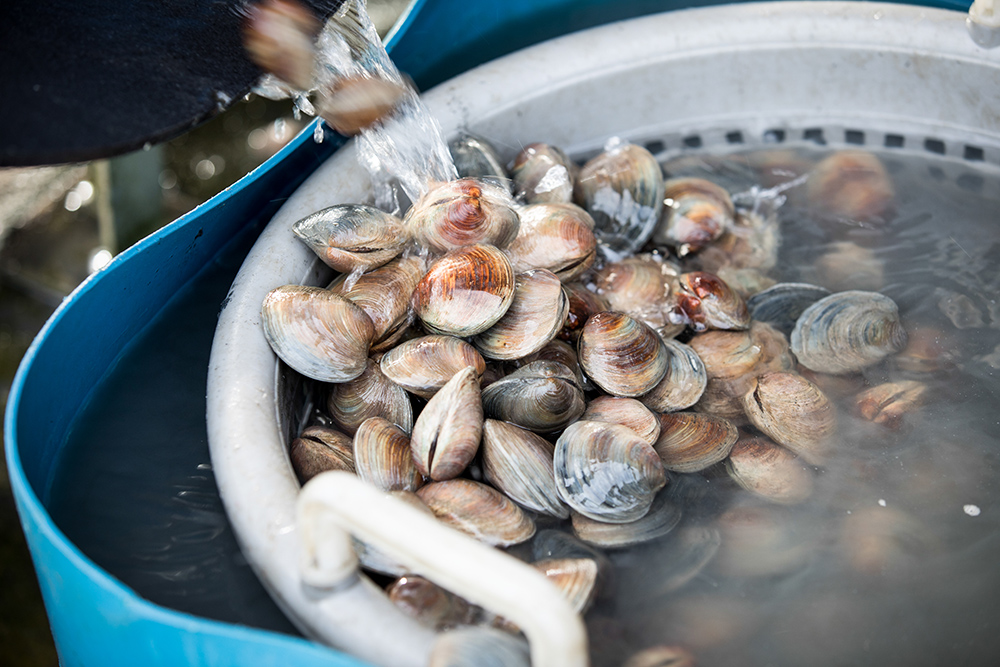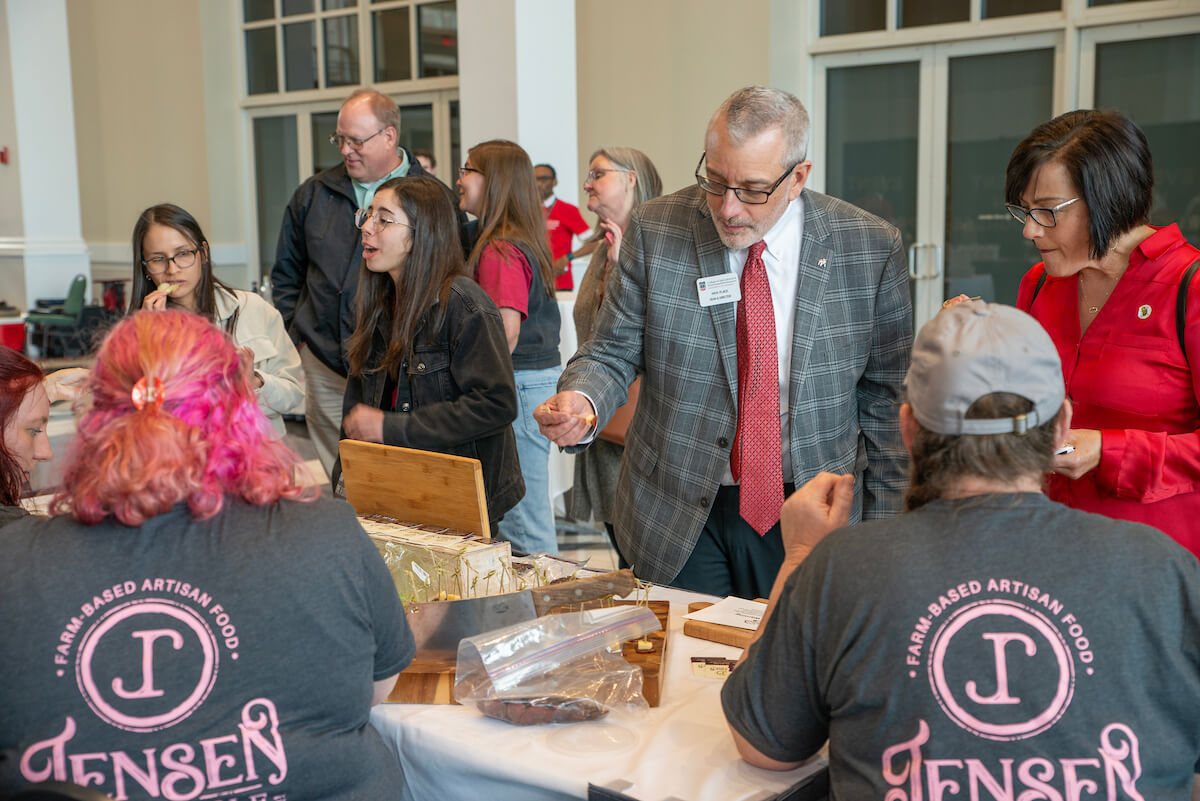
The University of Georgia will continue to serve as host institution for the Southern Sustainable Agriculture Research and Education (SARE) program. The U.S. Department of Agriculture program has funded farmer-driven grants and grassroots education programs resulting in climate-smart solutions for farms and ranches in every state and island protectorate since 1988.
UGA leads a consortium of institutions in administering the Southern SARE (SSARE) program, including Fort Valley State University in middle Georgia and The Kerr Center for Sustainable Agriculture in Oklahoma.
“More than $95.4 million in grant funding has been awarded to farmers, researchers and nonprofits across the Southern region to further sustainable agriculture efforts, both on the farm and in communities,” said Jeff Jordan, UGA College of Agricultural and Environmental Sciences emeritus faculty and project director who has served as the regional coordinator for SSARE since the fall of 1998. “We have distributed nearly 1,700 grants over the life of the program, and historically Georgia has consistently been among the top five states in grant funding, totaling $12.5 million.”
Under the UGA Regional Host Institution partnership, SSARE has had a long history of success implementing programs that support sustainable agriculture. Some highlights include:
- SSARE supports early-career professionals in grant making: In the last three years, more than 50% of research and education grant applicants have been early-career professionals.
- The program offers one of the few research grants in the country for graduate students, many of whom maintain their relationship with SARE as they continue their careers.
- More than 20% of previously funded applicants return to the SARE program as a funding source.
- Diversity, equity and inclusion are an important aspect of the SARE program, which has funded more than $100,000 in sponsorships the past three years to historically underserved communities to assist in their sustainability efforts.
- SSARE provides an opportunity for tomorrow’s leaders to participate in sustainable research programs through its Young Scholar Enhancement Grants. More than 40 projects totaling $178,000 have been awarded to high school and undergraduate students since 2013.
The 10-year awards are being made by USDA’s National Institute of Food and Agriculture (NIFA) in four regional SARE host institutions and the National Reporting, Coordinating, and Communications Office (NRCCO). Other regional grant recipients are the University of Minnesota (North Central SARE Regional Host Institution); University of Vermont (Northeast SARE Regional Host Institution); Montana State University (Western SARE Regional Host Institution); and University of Maryland (NRCCO).
“This investment in sustainable agriculture underscores USDA’s ongoing commitment to transforming our food and agricultural systems,” said Chavonda Jacobs-Young, USDA chief scientist and under secretary for research, education and economics (REE). “Through this investment, SARE will continue to provide competitive grants and education programs that foster farmer-driven innovation to promote climate-smart practices, make sustainable producers more profitable, and improve local economies and the quality of life in rural communities.”
Since its authorization in the 1990 Farm Bill, SARE has supported farmers in the four regions, with each regional program hosted by a land-grant institution and guided by volunteer administrative councils that set regional priorities and make grants. These councils include farmers and ranchers along with representatives from university, government, agribusiness and nonprofit organizations. Technical reviewers, also volunteers, lend professional and practical experience to help councils evaluate project proposals.
“Sustainable agriculture is a high priority for NIFA across many of our programs as we seek to provide more profitable farm income, promote environmental stewardship and enhance quality of life for farm families and communities,” said Dionne Toombs, who served as acting director of NIFA until May 8. “In the last 35 years, with funding from NIFA, SARE has provided $380 million in grant funding for nearly 8,400 projects serving farmers, growers and rural communities.”
These projects cover a wide range of topics, including supporting producers with on-farm renewable energy, pest and weed management, cover crops, high tunnel and session extension, crop rotations, marketing, pollinator health and local and regional food system development.
“The objective of the UGA Regional Host Institution partnership is to build on this history of excellent SSARE program management to continually improve and enhance SSARE through innovative leadership,” Jordan said.
NIFA invests in initiatives that ensure the long-term viability of agriculture and applies an integrated approach to ensure that groundbreaking discoveries in agriculture-related sciences and technologies reach the people who can put them into practice. For more information, visit NIFA’s website at nifa.usda.gov. Learn more about Southern SARE at southern.sare.org.






